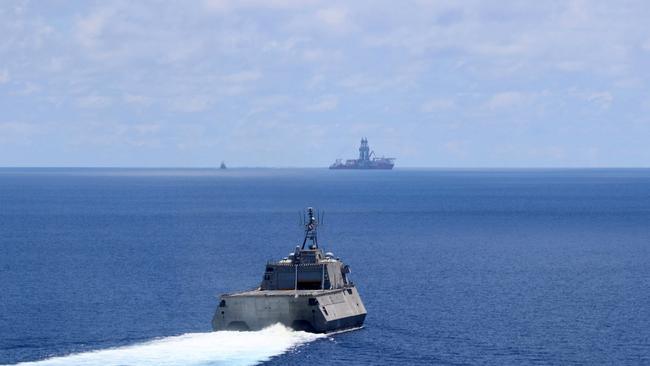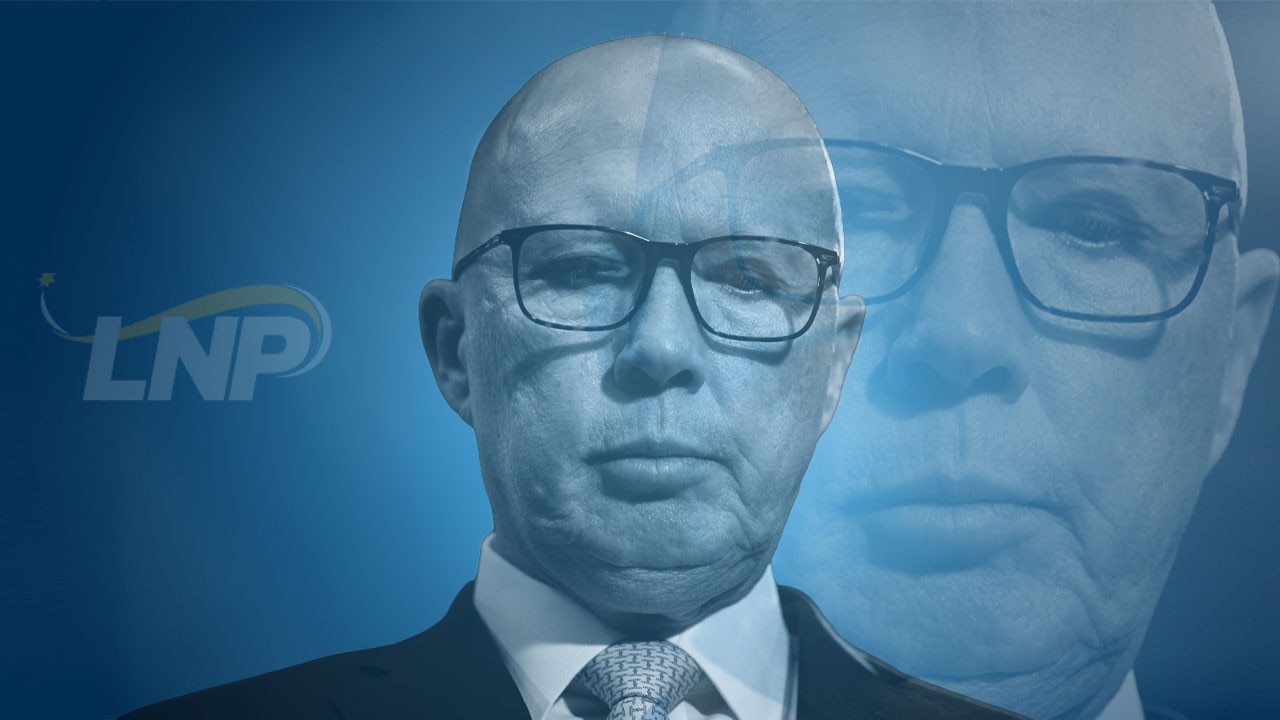Australia relies on longstanding South China Sea position as US muscles up
Australia has refused to endorse the Trump administration’s formal declaration that most of China’s disputed territorial claims in the South China Sea are illegal.

Foreign Minister Marise Payne has refused to say if she supports the Trump administration’s formal declaration that most of China’s disputed territorial claims in the South China Sea are illegal, after the United States warned Beijing posed an “unprecedented threat” to the region.
In a strengthening of its policy on the South China Sea, the US abandoned its official position of neutrality and effectively aligned Washington with South East Asian nations — Brunei, Malaysia, Indonesia, the Philippines and Vietnam — who are contesting China’s territorial claims.
“The world will not allow Beijing to treat the South China Sea as its maritime empire,” US Secretary of State Mike Pompeo said.
“Today we are strengthening US policy … we are making clear: Beijing’s claims to offshore resources across most of the South China Sea are completely unlawful, as is its campaign of bullying to control them. The People’s Republic of China’s predatory world view has no place in the 21st century. The PRC has no legal grounds to unilaterally impose its will on the region.”
The US move will anger Beijing in a time of rising tensions between the strategic rivals. Earlier this month the US sent two aircraft carriers to the South China Sea to participate in large military exercises in a show of force.
It also comes after Scott Morrison released a Defence white paper update that says more assertive behaviour by major powers, including Beijing’s militarisation of the South China Sea and coercive “grey zone” activities, present immediate challenges to Australia.
While defence experts said the pressure was on Australia to back the American statement with strong language and even action in the South China Sea, Foreign Minister Marise Payne did not respond to Mr Pompeo’s remarks.
A Department of Foreign Affairs and Trade spokeswoman said: “Australia’s longstanding and consistent position is that all claims in the South China Sea should be made and resolved in accordance with international law, in particular UNCLOS (United Nations Convention on the Law of the Sea).
“The 2016 arbitral tribunal ruling on the South China Sea found there was ‘no legal basis for China to claim historic rights to resources beyond those provided for in (UNCLOS) within the sea areas inside the ‘nine-dash line’. The arbitral ruling is final and binding on the parties, and we call on them to respect it.”
Australian Strategic Policy Institute executive director Peter Jennings said the timing of Mr Pompeo’s statement was more important than the content, with America pushing back against a very active Beijing in the South China Sea and East China Sea in the last few months.
“What we’re seeing is the US judging that China is potentially getting ready to push aggressively on one or another of (its) objectives in the region, the most likely is Taiwan, the risk of China announcing an air defence identification zone in the South China Sea,” Mr Jennings said.
“America is ramping up to deal with this China adventurism. In that context it would have been advisable for Australia to lift its own rhetoric. One of our strategic objectives is to keep Americans engaged in this part of the world. When they choose to do that it should receive diplomatic and military backing from Australia.”
An article published in The Global Times, the Chinese Communist Party’s tabloid, said the “US’ slander is groundless”.
“Despite being a non-claimant of the South China Sea, the US desires to stir up troubles. It takes advantage of regional countries’ claims to sow discord between these countries and China. It portrays a bully image of China,” the article states.
Opposition foreign affairs spokeswoman Penny Wong said Australia should be working with the US and other countries in the region to uphold the integrity of the 2016 tribunal ruling.
“This is a crucial component to building the region we want – one that is stable, prosperous and respects sovereignty,” she said.



To join the conversation, please log in. Don't have an account? Register
Join the conversation, you are commenting as Logout